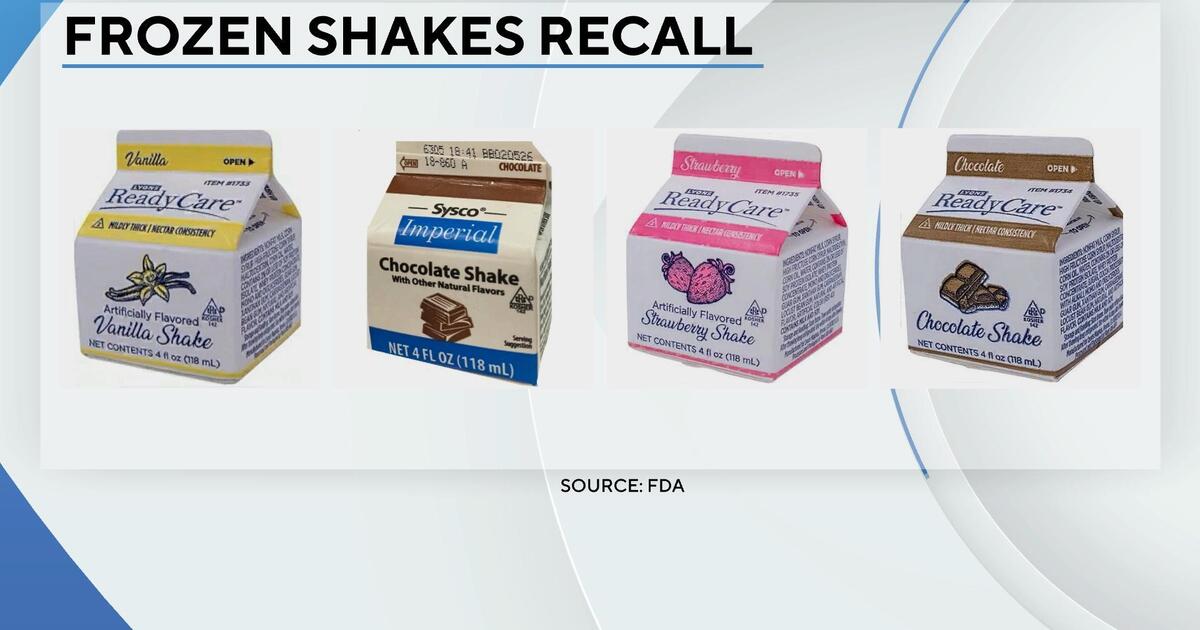Nationwide Recall: Frozen Supplemental Shakes Linked to Listeria Outbreak
A major health alert has been issued as frozen supplemental shakes sold across the country and in hospitals have been recalled due to potential listeria contamination. Listeria monocytogenes, the bacterium responsible for Listeriosis, poses a significant risk to vulnerable populations, including pregnant women, newborns, the elderly, and individuals with weakened immune systems. This article delves into the details of the recall, potential health risks, and essential steps consumers should take to ensure their safety.
Understanding Listeria and Its Health Implications
Listeria is a type of bacteria that can lead to severe illness and even death, especially among high-risk groups. Symptoms of listeriosis can include:
- Fever
- Muscle aches
- Nausea
- Diarrhea
- Severe headaches
In pregnant women, listeriosis can result in miscarriage, stillbirth, or severe illness in newborns. With frozen supplemental shakes being a popular nutritional option for many, the potential contamination raises serious concerns about public health and safety.
The Recall: What You Need to Know
The recent recall of frozen supplemental shakes is a precautionary measure taken by the manufacturers after testing revealed the presence of listeria in certain batches. The recall affects products distributed nationally and in various healthcare facilities, making it crucial for consumers to remain vigilant.
Key details of the recall include:
- Product Names: Various brands and flavors of frozen supplemental shakes.
- Distribution: Available in grocery stores and hospitals across the country.
- Batch Numbers: Specific batch numbers have been identified; consumers should check packaging for more information.
Consumers are strongly urged to check their freezers for any affected products and to refrain from consuming them. The FDA has provided guidance on how to identify these products and what actions to take if you have purchased them.
Why Are Frozen Supplemental Shakes Popular?
Frozen supplemental shakes have gained popularity for various reasons. They offer a convenient way to meet nutritional needs, especially for individuals who may have difficulty consuming solid foods. These shakes are often fortified with vitamins and minerals, making them an attractive option for:
- Patients recovering from surgery or illness
- Individuals with dietary restrictions
- Older adults who may struggle with appetite
However, the recent recall emphasizes that convenience should never come at the cost of safety. It is vital for consumers to remain informed and proactive about the products they choose to consume.
How to Stay Safe During a Recall
In light of the frozen supplemental shakes recall, here are some practical steps consumers can take to protect themselves and their families:
- Check Product Labels: Always examine the packaging of frozen supplemental shakes for any recall notices. Look for batch numbers and expiration dates.
- Follow Recall Instructions: If you find an affected product, follow the manufacturer’s guidelines on how to return or dispose of it safely.
- Stay Informed: Keep up with news releases and updates from the FDA or CDC regarding food recalls and safety alerts.
- Consult Healthcare Professionals: If you or a loved one has consumed potentially contaminated shakes and are experiencing symptoms, seek medical advice promptly.
The Role of Regulatory Agencies
Regulatory agencies like the FDA and CDC play a critical role in food safety. They monitor food products for contamination, conduct inspections, and issue recalls when necessary. The recent recall of frozen supplemental shakes highlights the importance of these agencies in protecting public health.
The proactive measures taken by manufacturers and regulatory bodies in response to the potential listeria contamination demonstrate a commitment to consumer safety. The ability to quickly identify and address issues in food products is essential to preventing widespread health crises.
Consumer Awareness and Education
Consumer awareness is paramount in mitigating risks associated with foodborne illnesses. Educational initiatives can empower consumers to make informed choices about the products they purchase and consume. Here are some strategies to enhance consumer education:
- Label Literacy: Encourage consumers to familiarize themselves with product labels, including understanding expiration dates and batch numbers.
- Recall Alerts: Sign up for alerts from the FDA and other health organizations to stay updated on recent recalls and food safety news.
- Public Health Campaigns: Participate in campaigns that promote food safety practices and awareness of foodborne illnesses.
Looking Ahead: Ensuring Food Safety
The recent nationwide recall of frozen supplemental shakes linked to a listeria outbreak serves as a critical reminder of the importance of food safety. As consumers, we play a vital role in ensuring our health by staying informed and vigilant. While recalls can be alarming, they are also a testament to the effectiveness of our food safety systems in identifying and addressing potential hazards.
In the future, manufacturers and regulatory agencies must continue to enhance their testing and monitoring processes to prevent similar incidents. Transparency in food production and distribution not only builds consumer trust but also fosters a culture of safety that benefits everyone.
As we navigate these challenges, let us remain optimistic about our ability to adapt and improve food safety practices. By working together, consumers, manufacturers, and regulatory agencies can create a safer food environment for all.
Final Thoughts
In conclusion, the nationwide recall of frozen supplemental shakes linked to listeria outbreak is a significant event that highlights the importance of food safety awareness. Consumers are encouraged to stay informed about the products they consume, check for recalls, and prioritize their health and safety. By taking proactive measures, we can collectively ensure that our food supply remains safe and nutritious for everyone.
See more WebMD Network



